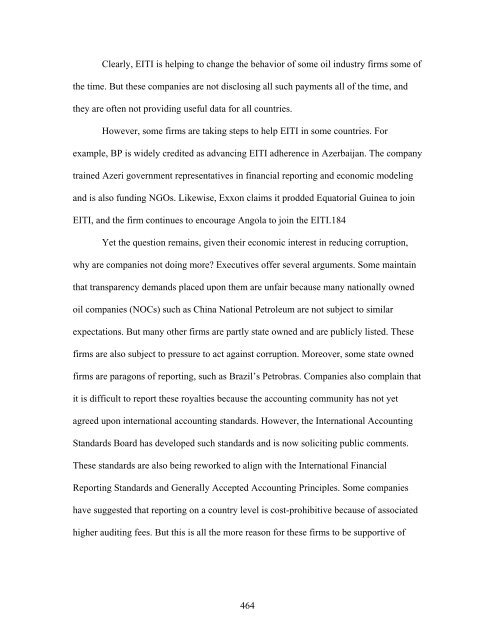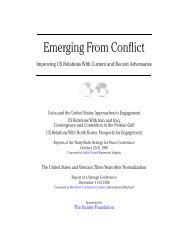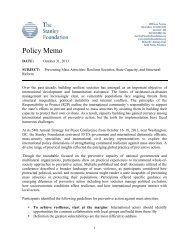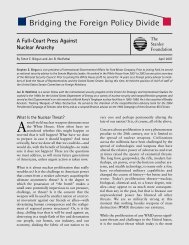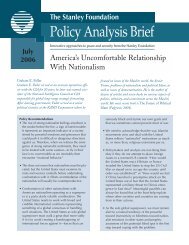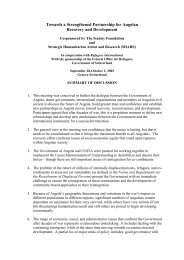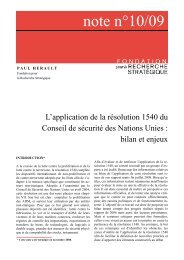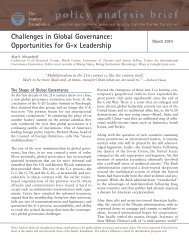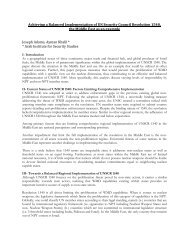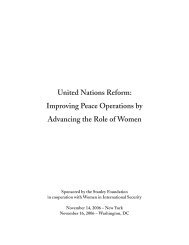444 By Susan Ariel Aaronson and David Deese With a reaction by ...
444 By Susan Ariel Aaronson and David Deese With a reaction by ...
444 By Susan Ariel Aaronson and David Deese With a reaction by ...
- No tags were found...
Create successful ePaper yourself
Turn your PDF publications into a flip-book with our unique Google optimized e-Paper software.
Clearly, EITI is helping to change the behavior of some oil industry firms some ofthe time. But these companies are not disclosing all such payments all of the time, <strong>and</strong>they are often not providing useful data for all countries.However, some firms are taking steps to help EITI in some countries. Forexample, BP is widely credited as advancing EITI adherence in Azerbaijan. The companytrained Azeri government representatives in financial reporting <strong>and</strong> economic modeling<strong>and</strong> is also funding NGOs. Likewise, Exxon claims it prodded Equatorial Guinea to joinEITI, <strong>and</strong> the firm continues to encourage Angola to join the EITI.184Yet the question remains, given their economic interest in reducing corruption,why are companies not doing more? Executives offer several arguments. Some maintainthat transparency dem<strong>and</strong>s placed upon them are unfair because many nationally ownedoil companies (NOCs) such as China National Petroleum are not subject to similarexpectations. But many other firms are partly state owned <strong>and</strong> are publicly listed. Thesefirms are also subject to pressure to act against corruption. Moreover, some state ownedfirms are paragons of reporting, such as Brazil’s Petrobras. Companies also complain thatit is difficult to report these royalties because the accounting community has not yetagreed upon international accounting st<strong>and</strong>ards. However, the International AccountingSt<strong>and</strong>ards Board has developed such st<strong>and</strong>ards <strong>and</strong> is now soliciting public comments.These st<strong>and</strong>ards are also being reworked to align with the International FinancialReporting St<strong>and</strong>ards <strong>and</strong> Generally Accepted Accounting Principles. Some companieshave suggested that reporting on a country level is cost-prohibitive because of associatedhigher auditing fees. But this is all the more reason for these firms to be supportive of464


